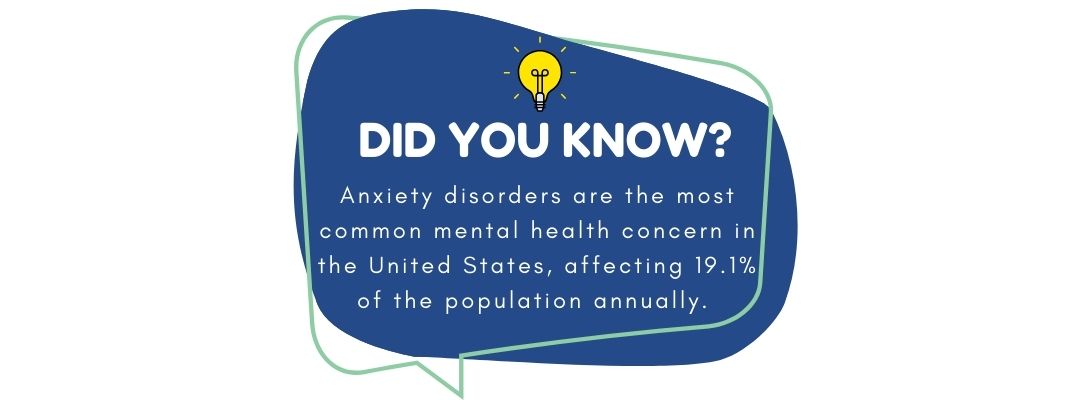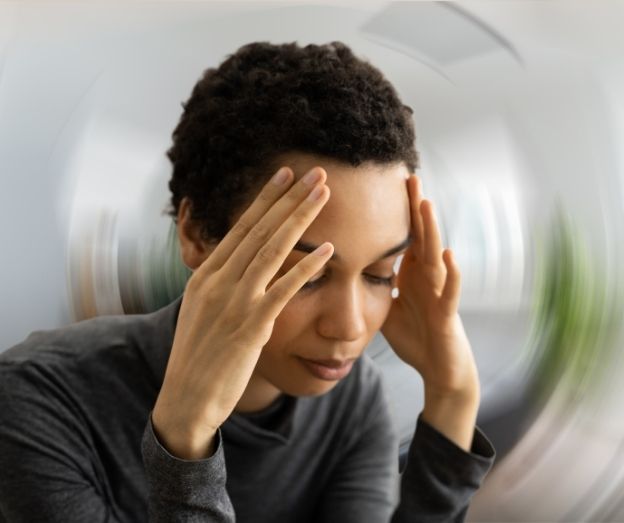Will Anxiety Cause Dizziness? Understanding the Physical Symptoms of Stress
In this post, we will explore the question will anxiety cause dizziness. Feeling dizzy can be a troubling symptom that affects daily life. Many people experience dizziness and wonder if their anxiety might be causing it.
Yes, anxiety can definitely cause dizziness. When someone feels anxious, their body enters a stress response that can trigger physical symptoms like dizziness, lightheadedness, or a spinning sensation. This happens because anxiety can change breathing patterns, blood pressure, and muscle tension.
Anxiety-related dizziness often occurs during panic attacks or high-stress situations. It may feel different from other types of dizziness like those caused by inner ear problems or low blood pressure. Understanding this connection between anxiety and dizziness can help people find appropriate treatments that address both the physical symptoms and their underlying cause.
Understanding Anxiety and Dizziness
Anxiety and dizziness often occur together, creating a challenging cycle for those affected. This connection involves both physical responses in the body and thought patterns that can trigger or worsen symptoms.
The Link Between Anxiety and Dizziness
Anxiety can directly cause dizziness through several pathways. Many people experience lightheadedness, vertigo, or a floating sensation during anxiety episodes. This relationship often becomes cyclical—feeling dizzy can increase anxiety, which then worsens the dizziness.
Studies show that up to 30% of people with anxiety disorders report dizziness as a significant symptom. This connection is especially common in panic disorder and generalized anxiety disorder.
The symptoms can range from mild unsteadiness to severe spinning sensations that make daily activities difficult. For some individuals, the fear of experiencing dizziness in public becomes a trigger for anxiety itself.
Medical professionals recognize this connection and often consider anxiety when evaluating unexplained dizziness complaints.
Physiological Mechanisms
When anxiety activates, the body enters a “fight-or-flight” response that causes several physical changes. Blood vessels constrict and dilate rapidly, affecting blood flow to the brain.
The respiratory system changes too. Many anxious people hyperventilate (breathe too quickly), which lowers carbon dioxide levels in the blood. This chemical shift can cause:
- Lightheadedness
- Dizziness
- Tingling in extremities
- Vision changes
Muscle tension, particularly in the neck and shoulders, can disrupt the vestibular system that controls balance. The inner ear, responsible for equilibrium, can receive confused signals during anxiety episodes.
Stress hormones like adrenaline and cortisol flood the body, affecting multiple systems simultaneously and contributing to dizziness sensations.
Psychological Triggers
The mind plays a powerful role in how we perceive physical sensations. When someone experiences anxiety, their attention often becomes hyperaware of bodily sensations.
This heightened awareness can make normal balance adjustments feel like concerning dizziness. Even subtle shifts that most people ignore become alarming to someone with anxiety.
Catastrophic thinking patterns contribute significantly. A person might interpret mild dizziness as a sign of serious illness, creating more anxiety and worsening symptoms.
Anticipatory anxiety develops when someone fears dizziness might occur. This creates a self-fulfilling cycle where the fear itself triggers the very symptoms the person dreads.
Certain situations can act as triggers for both anxiety and dizziness:
- Crowded spaces
- Driving
- Heights
- Social situations

Managing Anxiety-Induced Dizziness
Dealing with dizziness caused by anxiety requires both immediate coping strategies and long-term treatment approaches. The right combination of self-management techniques and professional help can significantly reduce both the frequency and intensity of these uncomfortable episodes.
Self-Help Strategies
Breathing exercises can quickly help manage anxiety-induced dizziness. Practice deep, slow breathing by inhaling for 4 counts, holding for 2, and exhaling for 6 counts. This helps regulate oxygen levels and calm the nervous system.
Progressive muscle relaxation helps reduce physical tension that contributes to dizziness. Tighten and then release each muscle group in your body, working from feet to head.
Staying hydrated and maintaining stable blood sugar levels prevents dizziness episodes. Carry water and healthy snacks, especially when feeling anxious.
Quick grounding techniques for immediate relief:
- Focus on 5 things you can see, 4 things you can touch, 3 things you can hear, 2 things you can smell, and 1 thing you can taste
- Place one hand on your chest and one on your stomach while breathing slowly
- Hold a cold object or splash cold water on your face
Professional Treatment Options
Cognitive-behavioral therapy (CBT) is highly effective for treating anxiety-related dizziness. This therapy helps identify and challenge unhelpful thought patterns that trigger anxiety and subsequent dizziness.
A therapist might recommend vestibular rehabilitation therapy if anxiety affects your balance system. These specialized exercises help the brain compensate for balance problems.
Medication options include:
- Anti-anxiety medications (for short-term use)
- Antidepressants (for long-term anxiety management)
- Beta-blockers (to manage physical symptoms)
Regular medical check-ups are important to rule out other causes of dizziness. Your doctor might recommend seeing an ENT specialist or neurologist to ensure the symptoms are solely anxiety-related.
Support groups provide valuable emotional support and practical tips from others experiencing similar symptoms. These can be found online or through local mental health organizations.
Frequently Asked Questions
Anxiety-related dizziness brings up many common concerns about management, duration, and treatment approaches. These questions address specific aspects of this symptom that many anxiety sufferers experience.
How can dizziness be alleviated during anxiety episodes?
Deep breathing exercises can quickly help reduce dizziness during anxiety episodes. Taking slow, controlled breaths from the diaphragm helps restore oxygen balance that may be disrupted during hyperventilation.
Sitting or lying down in a safe place prevents falls and can reduce the intensity of dizzy sensations. Closing the eyes can also help minimize visual stimuli that might worsen dizziness.
Grounding techniques like focusing on physical sensations or identifying nearby objects can redirect attention away from dizziness. Drinking water helps address potential dehydration that might contribute to lightheadedness.
Is it possible for dizziness from anxiety to persist throughout the entire day?
Yes, anxiety-related dizziness can last throughout the day, especially during periods of heightened stress or ongoing anxiety. Chronic anxiety keeps the body in a prolonged state of alertness that can maintain dizziness symptoms.
People with generalized anxiety disorder or panic disorder may experience more persistent dizziness. This happens because their nervous system remains in a heightened state for extended periods.
Even when acute anxiety subsides, residual tension in neck and shoulder muscles can contribute to ongoing lightheadedness. The brain’s heightened sensitivity to body sensations can also make normal balance fluctuations feel more significant.
What is the typical duration of dizziness caused by anxiety?
For most people, anxiety-induced dizziness typically lasts from a few minutes to a few hours. The duration often corresponds directly with how long the anxiety episode continues.
After a panic attack, dizziness might persist for 30-60 minutes as the body returns to its normal state. Some people report a lingering sense of unsteadiness that can last several hours after significant anxiety.
With effective coping strategies and anxiety management, the duration of dizziness episodes often decreases over time. Regular practice of relaxation techniques can help shorten these episodes.
What are the treatment options for dizziness associated with anxiety?
Cognitive-behavioral therapy (CBT) is highly effective for treating anxiety-related dizziness. This approach helps identify and change thought patterns that trigger or worsen anxiety and its physical symptoms.
Medication options include anti-anxiety medications for immediate relief and antidepressants for long-term management. Beta-blockers may help control physical symptoms like dizziness by reducing the effects of adrenaline.
Vestibular rehabilitation exercises can improve balance and reduce sensitivity to movements that trigger dizziness. Lifestyle modifications such as regular exercise, adequate sleep, and limiting caffeine and alcohol can significantly reduce anxiety-related dizziness.
Does experiencing dizziness related to anxiety for an extended period indicate an underlying issue?
Persistent dizziness lasting weeks or months warrants medical evaluation to rule out other conditions. Prolonged symptoms might indicate vestibular disorders, neurological issues, or inner ear problems that exist alongside anxiety.
Some people develop secondary anxiety about their dizziness, creating a cycle that prolongs symptoms. This condition, sometimes called persistent postural-perceptual dizziness (PPPD), can develop after initial episodes of anxiety-related dizziness.
Chronic dizziness might also signal that anxiety treatment needs adjustment. A healthcare provider can determine if current approaches are addressing the root causes effectively.
How does vertigo induced by anxiety differ from general lightheadedness?
Anxiety typically causes general lightheadedness or feeling faint rather than true vertigo. True vertigo involves a spinning sensation or the feeling that the environment is moving around you.
While anxiety can sometimes trigger vertigo-like sensations, genuine vertigo usually stems from inner ear problems or neurological issues. The distinction matters because treatment approaches differ based on the specific type of dizziness.
Anxiety-related lightheadedness often coincides with other anxiety symptoms like rapid heartbeat or shortness of breath. True vertigo, however, frequently occurs with nausea, vomiting, or difficulty walking, even in the absence of anxiety.




